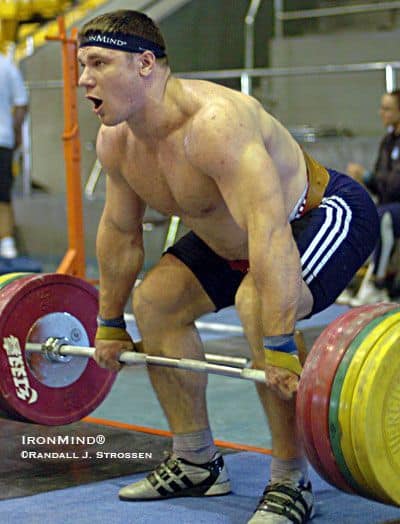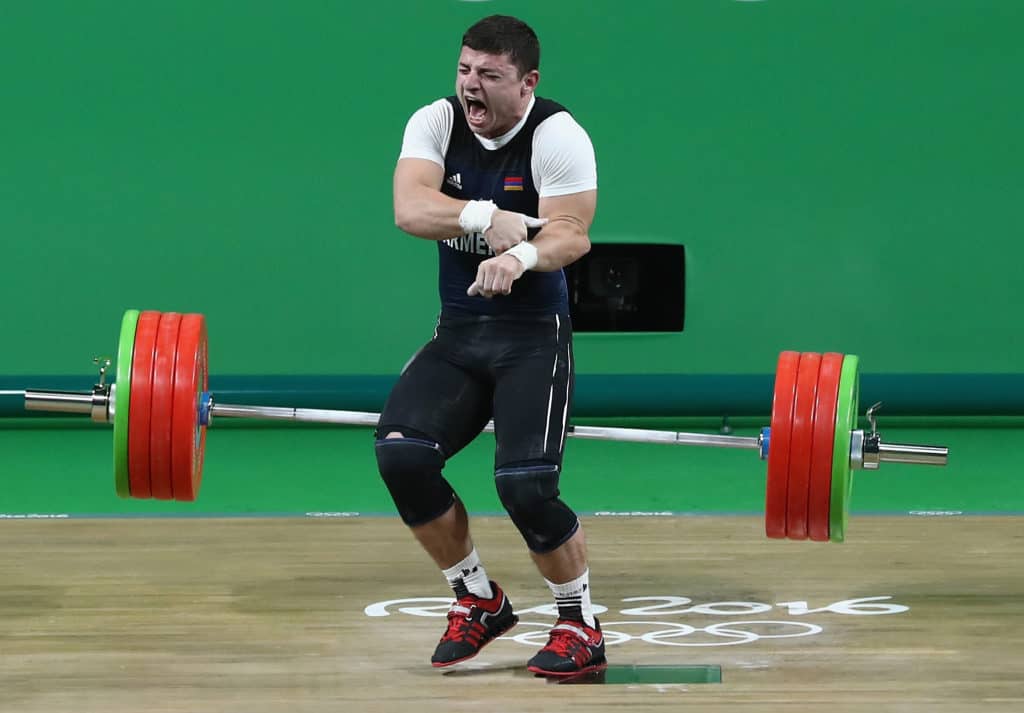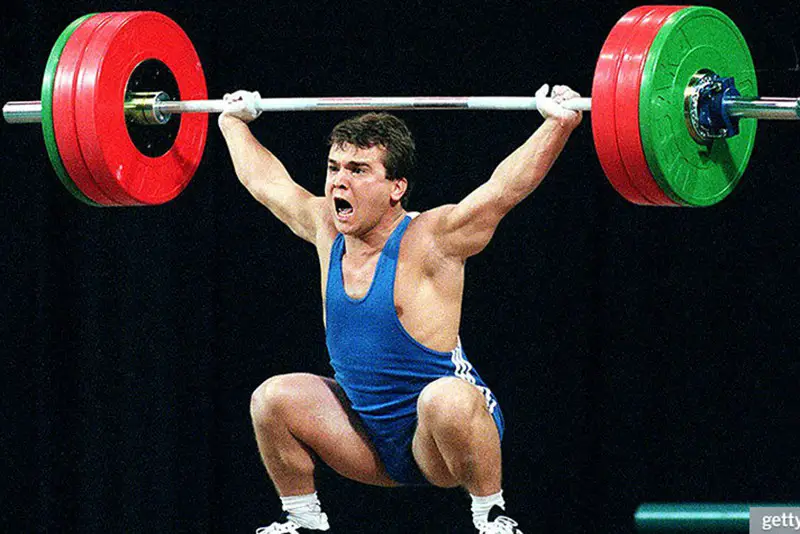
Strength and conditioning for rugby goes through trends. Every couple of years a new training modality becomes super popular and coaches proclaim it will take you from zero to hero in a few months. Olympic weightlifting is one of these strength systems that many rugby strength coaches have been claiming to be the answer to all your strength worries. It’s time to look at the effectiveness of Olympic weightlifting to improve rugby performance.
Is Olympic weightlifting good for rugby players?
Olympic weightlifting is not good for rugby players as it’s difficult to learn, requiring a big time investment and there is a high risk of injury significantly more than other forms of strength training. The benefits are not more effective than other modalities and do not justify the injury risks.

Is It Difficult For Rugby Players To Learn Olympic Weightlifting?
Olympic weightlifting is very difficult for rugby players to learn. Olympic weightlifting is its own sport that takes years of full time training to master. The unnatural movements combined with the speed athletes have to lift the bar makes it a very challenging sport.

If an Olympic weightlifter thought he could get good at rugby after only practicing the sport for 6 months while training a couple of times a week you would likely scoff at the suggestion. However, many rugby strength coaches are convinced that they can teach rugby players how to perform the Olympic lifts in a couple of months when they can not even properly perform them themselves.
It is hard enough for rugby strength coaches to get their players to perform the much simpler powerlifting movements (squat, bench and deadlift) with good technique. You will often see rugby players deadlift with a rounded back or good morning the weight during a squat.
If rugby players want to properly learn how to perform Olympic weightlifting they would have to spend hours every day practicing. This is obviously unfeasible as it would drastically reduce the amount of time they could spend on their rugby training and would therefore impact their on field performance.
If rugby strength coaches are convinced that the Olympic lifts will turn their players into super athletic cyborgs then instead of doing the full Olympic lifts they should get their players to do simplified versions. These simplified versions will still give rugby players the benefits of Olympic lifting but they are safer to perform and easier to learn.
Here Are Some Common Simplified Olympic Weightlifting Movements:
Power Clean – perform a clean but pull the bar high enough so you can catch the bar while standing upright
Power Snatch – same as power clean but instead snatch the weight
Hang Power Clean – deadlift bar to just above or below knee, pause, then perform a clean
Hang Power Snatch – same as hang power clean but snatch the weight
Is Olympic Weightlifting Dangerous For Rugby Players?
Olympic weightlifting is dangerous for rugby players as the sport has an injury rate of 3.3 per 1000 hours of practice. Back, shoulder and knee injuries including strains, hernias and tendonitis are the most common injuries and are often chronic and debilitating.

Olympic weightlifting is very strenuous on athletes’ backs, shoulders and knees. Athletes regularly suffer from strained muscles, herniated discs and tendonitis. These body parts are also put under a lot of stress during rugby and rugby athletes also suffer many of the same injuries. Rugby is dangerous enough with significant injury risks of its own. Players do not need to compound their chance of injury by practicing another dangerous sport on top of their rugby training.
It is also worth noting that the injury statistics for Olympic weightlifting mentioned above were taken from a study of elite level weightlifting athletes. These athletes are highly experienced, have great technique and train under knowledgeable coaches.
In contrast rugby players often have very poor weightlifting technique, their bodies are not conditioned to years of performing the Olympic lifts and rugby strength coaches are often inexperienced at coaching Olympic weightlifting. Due to this you would expect that rugby players may suffer from a much higher injury rate, making Olympic weightlifting actually much more dangerous for rugby athletes.
With many rugby players being forced off the field due to injuries and a large number of players having to hang up the boots due to chronic injuries, strength coaches should be looking for routines that have a very low chance of injury and will help rugby athletes become less injury prone, not exacerbate existing issues.
Does Olympic Weightlifting Improve Rugby Performance?
Olympic weightlifting has shown to improve rugby performance by increasing an athlete’s broad jump, vertical jump and sprinting speeds. However, the results are not significantly different from other forms of strength training such as powerlifting and plyometrics.

There is no doubt that performing Olympic weightlifting can make you a stronger, faster, more powerful rugby player. The only problem is the injury risk and the amount of time you need to dedicate to learning the movements.
These negatives are not outweighed by the positive performance increases as studies have shown that other strength routines are also effective in developing a rugby athlete’s strength, power and speed and are much safer to perform.
When developing an effective strength and conditioning program safety also has to come first to performance. There is no point in designing a routine that will turn all your players into Usain Bolt if they all blow out their knees midway through the program and are sidelined for the season.
The benefits need to greatly outweigh the risks and with Olympic weightlifting the injury risks are too high especially when you can substitute the clean and jerk and the snatch for so many other movements which are just as effective.
If you are looking to mimic the explosiveness and speed of Olympic weightlifting but in a much safer way try out these exercises.
Olympic Weightlifting Substitutes:
- Barbell Jumps
- Medicine Ball Throws
- Kettlebell Swings
- Box Jumps
- Shot Put Throws
- Box Squats
- Jumping Lunges
Conclusion
Olympic weightlifters are fantastic athletes. They are incredibly fast, flexible, explosive and strong. Not to mention they have high amounts of muscle and mind blowing strength to weight ratios. Performing the Olympic lifts will absolutely help rugby players become stronger, faster and more powerful.
Unfortunately Olympic weightlifting is difficult to learn and there is substantial injury risk. Due to this and the fact that alternate safer strength exercises are just as effective at improving performance, rugby players are better off avoiding Olympic weightlifting.
If rugby players are looking to develop their explosiveness and speed they should perform barbell jumps, box squats, medicine ball throws and box jumps. If you are a true believer in Olympic weightlifting and really want to perform them then you should incorporate simplified and safer versions of the lifts into your routine such as power cleans and snatches.
